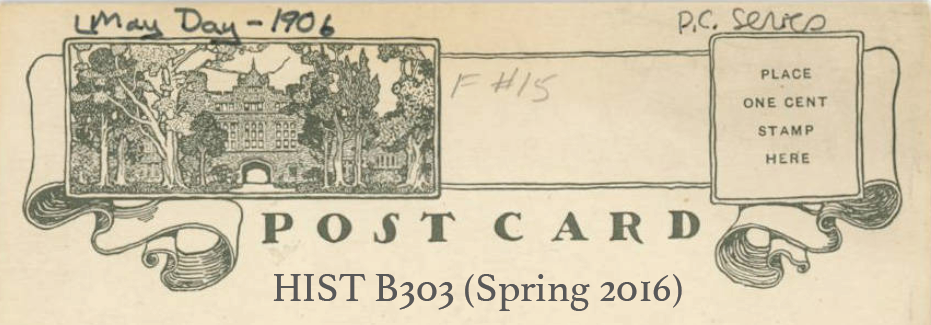Although I have been a fan of Dean Spade for a while now, and saw him when he spoke at Bryn Mawr a couple years ago, I was touched and emboldened by his insight on the problem’s of women’s colleges. I see a lot of similarities between Bryn Mawr and Barnard, and the way they handle their pasts and present. As Spade touched on all the various institutional changes women’s colleges must make to promote a true gender justice framework, which prioritizes the poor, disabled, and people of color, I thought about my last two years at Bryn Mawr, my failed organizing attempts, and what parts of this message we take in and what we silence.
Although Bryn Mawr history certainly contains legacies of real organizing, in my experience our efforts are more directed towards what feels good than what actually does things. We try to change culture but not structure. When students work on divestment campaigns, as I and others did in the Environmental Justice League until it broke up and others did in Students for Justice in Palestine, there really isn’t that much interest by other students, and there is huge push back by the administration. I think one of the main reasons is that even though we like to promote a progressive image, the powers behind the scenes on the board are much more conservative, so most of the actions we take do not change a lot at the financial level, where a lot of power is held. On the other hand, Bryn Mawr students love “activism” that involves making ourselves feel good, probably partially because of white middle class guilt, like having teach ins, panels, and discussions about issues which seem like they are going to bring about change but in reality do not. I think the most stark example of this tendency was the huge march on campus against the Confederate flag and racism last year, which included the administration and the least aggressive chants I have ever heard, like “we are one”. I participated, but as an anarchist to be honest I kind of rolled my eyes. Another example was the recent community day of learning on class, which certainly raised up marginalized voices, but I doubt will lead to important institutional changes like the ones Spade advocates. Will we actually make a better effort to distribute college resources to the most needy? Will we raise the wages of students and staff? Will we change the wage system on campus so dining hall workers don’t get paid less than workers in more typically middle class jobs like the library? Will we divest!?!? Organizing is not usually fun when it becomes effective. I think we could organize around these issues, but fewer people would actually be interested. In my experience liberals like to feel like they are “doing something” but as the keynote speaker said, it requires more than that, connection through communities, and most importantly struggle. A day of learning is not struggle. Maybe these actions raise consciousness, but struggle involves conflict and means that not everyone in the administration is our friend and should be included in the march.
If you want to read about this “feel good” trend in the wider left, this article talks about how “the international Left promotes its own image rather than engaging in the bitter reality of resistance against neoliberalism.” Its striking how a global trend can be mirrored in small institutions like Bryn Mawr. https://libcom.org/library/postmodern-left-success-neoliberalism
